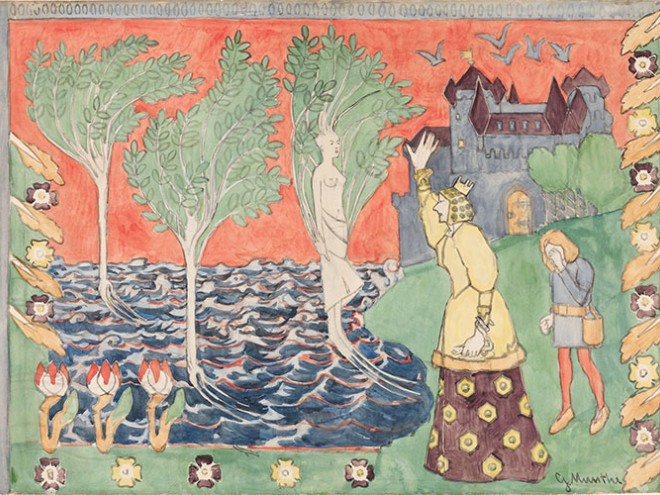Through twenty-six essays, Sabrina Orah Mark breathlessly leaps between her family history and the metaphors hidden in fairy tales. Her life’s journey has moved her from a Brooklyn yeshiva upbringing in a divorced home in the seventies and eighties to a more rural Georgia, where she is a writer and the mother of two Black Jewish sons. “If you stay home,” Mark writes, “there is no story.”
The fairy tales offer her a way to probe her own apprehensions about being a mother, a stepmother, a third wife, and the daughter of an unsentimental mother. It’s not easy to keep your family safe, Mark seems to say, when the outside world is writing its own narratives of racism, dying migrant children, and Covid. She would like to bring in her beak-nosed plague doctor doll and the Jewish clay golem of lore to draw a magic circle around those she loves.
These literary and wryly humorous pieces, most of which appeared as columns in The Paris Review, interweave frank episodes from Mark’s life with traditional folklore, biblical tales, and widely known stories like Hans Christian Andersen’s The Little Mermaid. She eschews Disney escapism, preferring to wring meaning from the original tales — and she does not shy away from sharing her feelings about her own stories. She admits that she often worries about hurting people with what she writes. She believes healing is possible through an honest exploration of witches and cruel stepmothers, who let us see the monsters in ourselves. She wonders about whether she should have been teaching her children about the hypotenuse of a triangle when homeschooling this year; how to handle her lost teenage stepdaughter, who moves in with a tarantula; and what to tell her sons, who have climbed to the top of a precarious heap of bricks.
In “Children with Mothers Don’t Eat Houses,” Mark nimbly moves from describing the pebble found in her elder son’s ear to recalling those dropped by Hansel and Gretel to find their way home. Really, she asserts, they were hungry for a mother when they ate the gingerbread house. She tells how her own mother would stop speaking to her when she disagreed, and how, at age twelve, she and her nine-year-old twin brothers occupied an apartment eight floors below their mother, where they lived alone for years. “Home in the fairytale is a cracked shell,” Mark says. But the chapter doesn’t end there. Mark provides lyrics for the song her American yeshiva class routinely sang, about leaving Russia and its prisons to be free. Pebbles lead her to thoughts of death and stones placed on the top of Jewish tombstones to keep the soul from being lost, and then to the story of her sons filling their pockets with pebbles. She then discusses Samuel Beckett’s Molloy, whose titular character sucks stones and cannot remember if his mother is dead — at which point Mark recounts being a first-time mom, struggling to breastfeed, her own mother telling her that her milk must be sour.
Literary and plain-spoken, serious and wry, this short book leaves the reader with many quotable passages, memorable images of motherhood, and a new way to consider their own lives.
Sharon Elswit, author of The Jewish Story Finder and a school librarian for forty years in NYC, now resides in San Francisco, where she shares tales aloud in a local JCC preschool and volunteers with 826 Valencia to help students write their own stories and poems.



